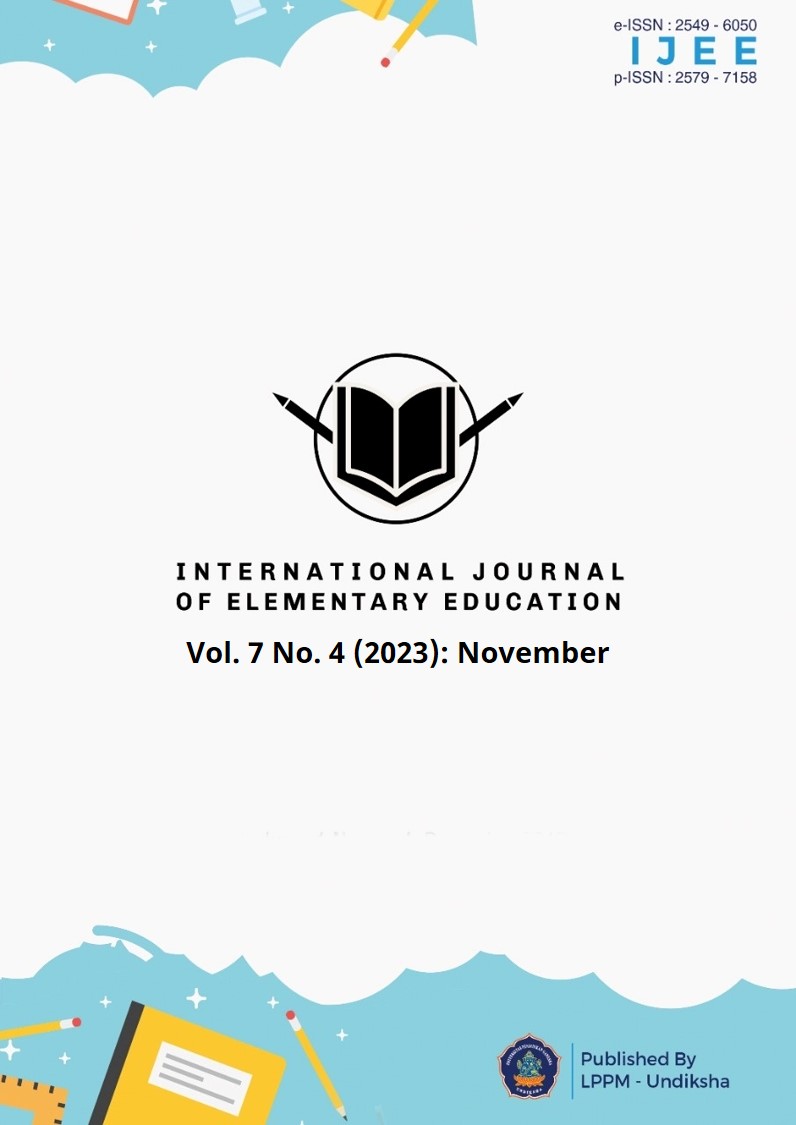Project Based Assessment with a Phenomenon-Based Learning Approach on Achieving the Pancasila Student Profile in Elementary School
DOI:
https://doi.org/10.23887/ijee.v7i4.69642Keywords:
Project Based Learning Assessment, Phenomenon Based Learning, Pancasila Student ProfileAbstract
The Pancasila student profile is a description of the competencies that Indonesian students must have. This study aims to analyze the impact of project-based assessment with a phenomenon-based learning approach on achieving the Pancasila student profile in elementary school students. This research is experimental research using a quantitative approach. The research design used in this study was a nonequivalent post-test only control group design. The populations in this study were elementary school students spread across various regions, namely rural, suburban and urban areas. Determining the number of samples in this study was carried out using the Slovin formula with an error tolerance limit of 3%. Furthermore, sampling in this research was carried out using cluster random sampling techniques. Based on the results of the Independent Sample T-Test analysis using the IBM SPSS Statistics 21.0 for Windows program, a significance value (Sig. 2-tailed) was obtained of 0.000. Based on these results, it can be seen that the Sig. < 0.05. So, it can be concluded that H0 is rejected and Ha is accepted. In other words, there is a significant difference in the achievement of the Pancasila student profile in the group that was given treatment in the form of a project-based assessment with a phenomenon-based learning approach and those who were not treated in the form of a project-based assessment with a phenomenon-based learning approach. Thus, the use of project-based assessment with a phenomenon-based learning approach is effective in increasing students' achievement of the Pancasila Student Profile indicators.
Downloads
Published
How to Cite
Issue
Section
License
Copyright (c) 2023 I Wayan Widiana, Maria Goreti Rini Kristiantari, Ni Komang Widiani

This work is licensed under a Creative Commons Attribution-ShareAlike 4.0 International License.
Authors who publish with the International Journal of Elementary Education agree to the following terms:
- Authors retain copyright and grant the journal the right of first publication with the work simultaneously licensed under a Creative Commons Attribution License (CC BY-SA 4.0) that allows others to share the work with an acknowledgment of the work's authorship and initial publication in this journal.
- Authors are able to enter into separate, additional contractual arrangements for the non-exclusive distribution of the journal's published version of the work (e.g., post it to an institutional repository or publish it in a book), with an acknowledgment of its initial publication in this journal.
- Authors are permitted and encouraged to post their work online (e.g., in institutional repositories or on their website) prior to and during the submission process, as it can lead to productive exchanges, as well as earlier and greater citation of published work. (See The Effect of Open Access)









